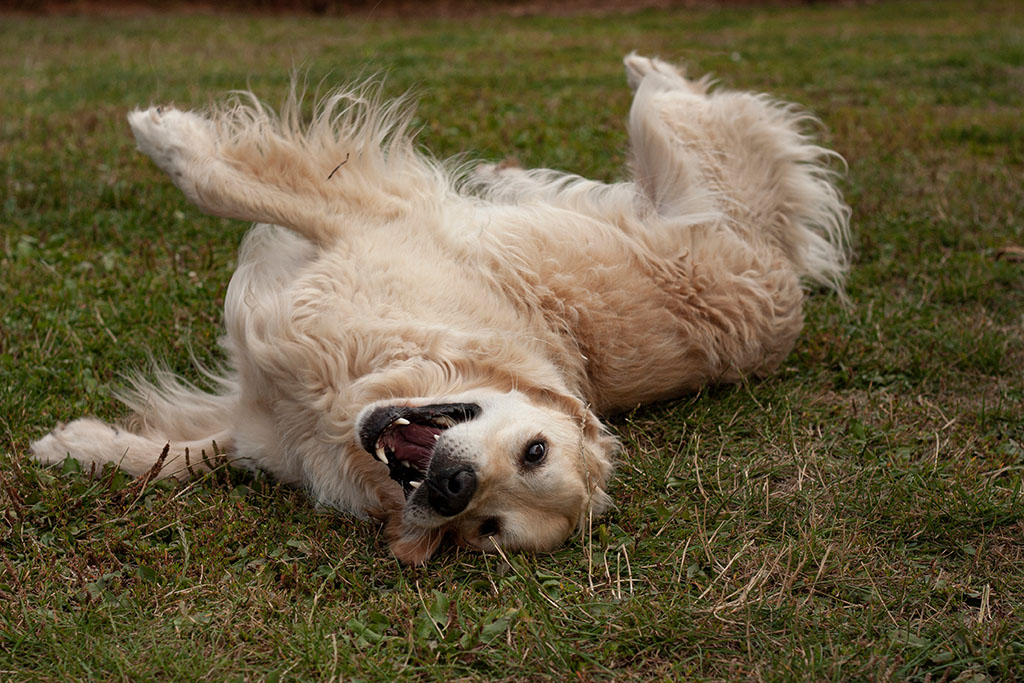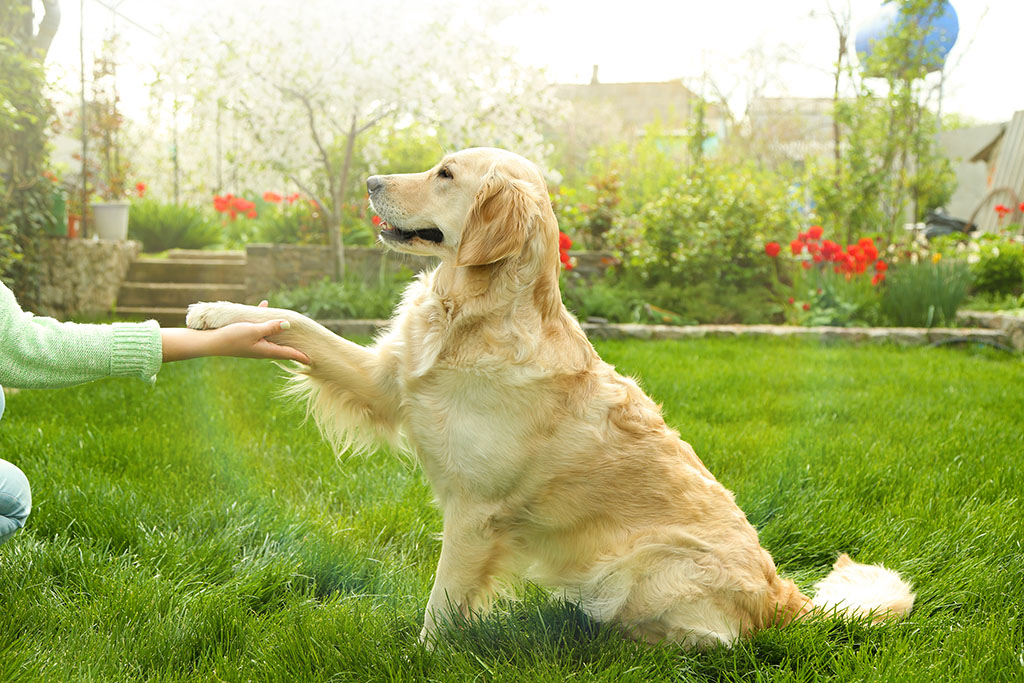5 Easy Tricks To Teach Your Dog – Why It’s Never Too Late To Teach An Old Dog New Tricks

As any dog owner knows, it’s really important to teach your dog the basics of dog training; the classic sit, come, stay, etc. But once your pooch has mastered these, have you thought about some easy tricks to teach your dog? Often people assume their dog won’t be able to perform these tricks, but with a bit of commitment, a lot of patience, and plenty of treats, any dog can learn new tricks.
Teaching your dog a few fun tricks isn’t just about having a party trick to impress your friends; learning new things stimulates your dog, both physically and mentally. It’s also a good way for you to spend time and bond with your dog; it burns off some excess energy and helps reinforce basic commands, learning to do tricks with their paws, for example, could also help when they have to visit the vet. The best thing is, you don’t need to be an expert, nobody’s expecting to see you and Fido on Britain’s Got Talent, dancing to the Macarena; unless you really want to, of course.
So grab those treats and let’s get started!
How To Teach Your Dog To Bow
This is one of the easiest tricks to teach your dog, as dogs use the bowing position when they’re trying to get someone to play with them.
Start with your dog facing you.
Hold a treat in front of their face then move it down through their legs towards their stomach.
If they bend their front legs without moving their back legs, give them a treat.
Lure them back into an upright position with another treat, then repeat.

How To Teach Your Dog To Roll Over
If your dog has mastered lying down on command, then the next step is to teach them how to roll over, using treats to get them into the position you want, rather than using your hands.
Get them in the down position.
Gently encourage them to turn their nose towards their shoulder by slowly moving a treat to the side of their head.
As your dog moves their head to follow the treat they should roll over, as the head and body will follow the nose. They’ll have to lie on their side to follow the treat.
Once they’ve rolled over all the way, praise them and give them a treat.
How To Teach Your Dog To High Five
Hold a treat in your hand, enclosed in your fist. Let your dog sniff it and lick it.
Once they start pawing at your hand, give them the treat and say ‘yes’.
Repeat this action a few times with the words ‘high five’.
Once they’ve mastered this, swap your hand position so they’re meeting your hand with their paw. Repeat until they do this every time.

How To Teach Your Dog To Spin
Let your dog know you have a treat in your hand.
Use a treat to coax your dog to turn in a circle, using ‘spin’ or ‘twirl’ as a verbal cue, giving them the treat as soon as they do a full circle.
You could try a different command to make them go in the opposite direction, making your friends think your dog can tell their left from their right!
How To Teach Your Dog To Play Dead
This builds on the basic command of ‘lie down’ and ‘stay’, so start by commanding your dog to lie down.
Hold a treat close to your dog’s nose and gently roll your dog onto their side to show that they have to be on their side to get the treat.
As soon as your dog is on their side, use a verbal command such as ‘yes’ or ‘good’ and give your dog the treat.
When your dog has mastered the roll a few times, you then need a verbal cue (most people use ‘bang’) and a hand signal (maybe two fingers pointed like a gun) then say the word while doing the signal; putting the treat on the floor next to the dog.
Eventually, you can extend the time between the dog lying down and getting the treat to make it stay down for longer.

Using A Clicker
Often treats are used when training dogs; by rewarding them straight after they successfully perform a trick, they associate that particular act with something positive. But some people prefer to use clicker training as a way of getting their dog to focus on the task in hand.
You can use a clicker instead of a verbal cue as it’s more consistent than the sound of your voice, which can vary in tone and volume without you even realising it. Start by giving your dog a treat every time you use the clicker, before using it in response to good behaviour. Once you’re confident your dog knows what the clicker means, you can use it when teaching them tricks.
Conclusion
Teaching your dog to do tricks is basically an extension of general obedience training, and similar rules apply; make sure there are no other distractions around and do it somewhere familiar where your dog feels comfortable, preferably indoors. It’s a really good way of bonding with your dog, as well as being lots of fun!
Of course, it’s always a good idea for pet owners to have a look at dog insurance, as it’s important to factor in the unexpected when caring for a pet. The Insurance Emporium has five different policies to choose from, including cover for senior dogs, so you’re sure to find one that suits you and your dog, giving you the peace of mind of knowing that your pooch is protected; leaving you free to perfect your macarena with your best friend by your side.
All content provided on this blog is for informational purposes only. We make no representations as to the accuracy or completeness of any information on this site or found by following any link on this site. We will not be liable for any errors or omissions in this information nor for the availability of this information. We will not be liable for any loss, injury, or damage arising from the display or use of this information. This policy is subject to change at any time.
We offer a variety of cover levels, so please check the policy cover suits your needs before purchasing. For your protection, please ensure you read the Insurance Product Information Document (IPID) and policy wording, for information on policy exclusions and limitations.







